GEAR: Global Education and Active Response for the Protection of Human Rights
The Erasmus+ Programme of the European Union has funded a new project that GSI Italy will implement in partnership with institutions from other 4 European countries (Croatia, Spain, Macedonia and Slovenia).
The goal of the GEAR project is to contribute to intercultural understanding through cooperation of CSOs with formal education systems, teachers and students and encourage exchange, improvement and up-scaling of existing best practices of global, civic and intercultural learning among schools at local, regional, national and transnational levels. Its general objective is to prevent violent radicalisation and to promote democratic values, fundamental rights, intercultural understanding and active citizenship.
GEAR: Global Education and Active Response for the Protection of Human Rights, Inclusion and Democratic Values in Intercultural Societies
- Financiers: Erasmus+ KA3
- Start year: 2017
Descrizione
Project goals
The goal of the GEAR project is to contribute to intercultural understanding through cooperation of CSOs with formal education systems, teachers and students and encourage exchange, improvement and up-scaling of existing best practices of global, civic and intercultural learning among schools at local, regional, national and transnational levels. Its general objective is to prevent violent radicalisation and to promote democratic values, fundamental rights, intercultural understanding and active citizenship.
This project is funded by the Erasmus+ Programme of the European Union.
Project background
The project is proposing to build on the existing programs for social inclusion and civic/intercultural education of youth and teachers implemented by the project partners, programs developed both by schools and CSOs. Some of these individual programs have a long tradition of implementation at national levels in each country, but they will be enhanced and upgraded in accordance with the actual needs and expanded transnationally, as well as enabling a transnational exchange of existing successful practices among partners and teachers in different countries.
Project activities
The project activities are:
- Education/training of teachers and educators
– 5 (one per partner country) national-level education/training sessions for 20 teachers and educators and a transnational 3-day exchange and education/training for teachers and educators - Trainings for Youth Promoters of Tolerance and Inter culturalism
– 5 (one per partner country) training sessions for Youth Promoters of Tolerance and Interculturalism and a transnational 2-day exchange and education/training for Youth Promoters of Tolerance and Inter culturalism - School intercultural and inclusion projects
– inclusion projects developed by schools included in the project (e.g. solidarity actions/protection of human rights actions, prepared in local communities) - National and transnational networking and exchange of good practices
– school exchange visits among the partner schools, establishment of an International network of intercultural inclusive schools, conferences and panel debates that focus on the topics of democratic values, fundamental rights, intercultural understanding and active citizenship - Quality assurance and upgrading education/training modules
– a comparative analysis of existing best practice examples for education/training of intercultural understanding in different countries, that will be used for the curriculum development in each country (to upgrade existing programs) as well as for the transnational curriculum development - Project Management /Evaluation
– coordination of activities, partner meetings, project monitoring and evaluation
Project partners
The organisations involved in the project are:
- GONG
- Mirovni inštitut – Peace Institute
- GSI ITALIA
- Fundación Educativa y Asistencial Cives
- Nansen Dialogue Centre Osijek
- Nansen Dialogue Centre Skopje (NDC Skopje)
- Ekonomska i turistička škola Daruvar / School of Economics and Tourism Daruvar
- Elementary school Siniša Glavašević / Osnovna škola Siniše Glavaševića, Vukovar
- Dalj Elementary School / Osnovna škola Dalj
- Municipal Secondary Vocational School ‘’Gostivar” (Gostivar, Macedonia)
- Municipal Primary School Liria (Tetovo, Macedonia)
